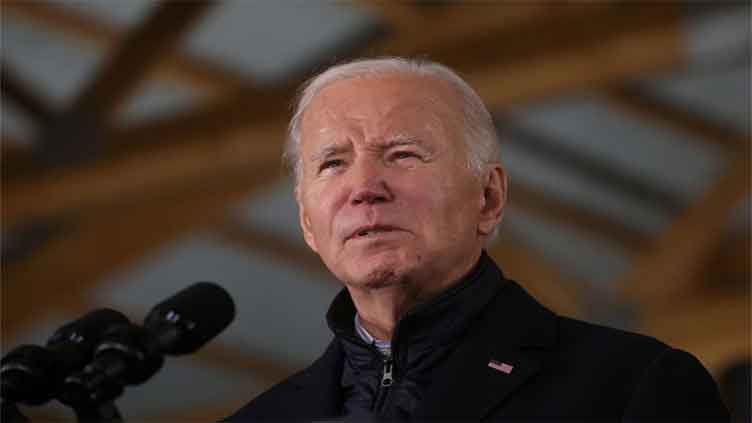Biden, Latin leaders pledge to boost economic ties, build sustainable supply chains

World
Biden, Latin leaders pledge to boost economic ties, build sustainable supply chains
WASHINGTON (Reuters) - US President Joe Biden and leaders from Latin America, the Caribbean and Canada met at the White House on Friday, pledging to expand economic ties in the Western Hemisphere as Washington works to counter China and stem the flow of migrants.
Leaders from Barbados, Canada, Chile, Colombia, Costa Rica, the Dominican Republic, Ecuador, Peru and Uruguay took part, along with top officials from Mexico and Panama.
Biden kicked off the inaugural Americas Partnership for Economic Prosperity (APEP) Leaders' Summit with a message of hope despite huge foreign policy challenges posed by the Israel-Hamas conflict and Ukraine's bid to repel Russian invaders.
Biden said the goal was to "harness the incredible economic potential of the Americas and make the Western Hemisphere the most economically competitive region in the world," drawing a sharp contrast to China's often-criticized lending practices.
"We want to make sure that our closest neighbors know they have a real choice between debt-trap diplomacy and high-quality transparent approaches to infrastructure and inter-development," Biden said.
In a joint declaration, the leaders underscored their collective commitment to democracy, rule of law, diversity and inclusion, decent work and well-paying jobs, environmental and social protection, labor rights, universal human rights, and fundamental freedoms in the Americas.
"We intend to establish the Americas as the home of the world’s most competitive, inclusive, sustainable, and resilient regional value and supply chains," they said, with an initial focus on clean energy, medical supplies and semiconductors.
The leaders said they would work with the Inter-American Development Bank to promote sustainable investment and catalyze regional growth, and called on their ministers to expand trade links and remove barriers to greater economic integration.
Senior US officials said they hope to reduce the large numbers of migrants arriving at the US-Mexico border by expanding economic opportunities for people at home.
Six APEP countries - Costa Rica, Ecuador, Colombia, Peru, Chile and Panama - had offered legal status to millions of people displaced in the Western Hemisphere, one of the officials said.
"They have stepped up in big ways and we are stepping up for them. APEP is a big part of that," the official added.
Jason Marczak, senior director of the Atlantic Council’s Adrienne Arsht Latin America Center, said the partnership would "set the stage for a new era of US investment in the region."
"Across the region, there is a high desire for more U.S. investment," he said, citing bipartisan support in Congress for more investment in the hemisphere after supply chain snafus during the COVID-19 pandemic triggered concerns about overreliance on China.
U.S. Treasury Secretary Janet Yellen hosted a breakfast meeting for the leaders at the Treasury on Friday, telling them that the US would work closely with the IDB to support efforts to better integrate the region's supply chains.
She said Treasury supported efforts by IDB President Ilan Goldfajn to reform its private sector arm, IDB Invest, and would work with the bank's other shareholders to enable a "significant" capital increase for IDB Invest.
The IDB, the region's largest development bank, will unveil a new financing platform to serve middle- and higher-income countries, potentially mobilizing billions of dollars for investment in renewable energy, U.S. officials said.
The summit followed a similarly themed meeting of Western Hemisphere leaders in Los Angeles last year, part of a broader push aimed at strengthening regional economic ties and reducing China's influence in the region.
At the "Summit of the Americas," the US and 19 other countries signed a non-binding declaration agreeing to a set of measures to confront the migration crisis.
Record numbers of migrants have crossed illegally through the US-Mexico border in recent years, with hundreds of thousands of people heading north after traversing a perilous jungle region known as the Darien Gap between Colombia and Panama.


